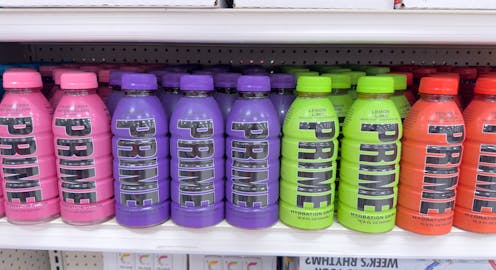Prime drinks aren't suitable for children and pregnant women. Here's why
- Written by Evangeline Mantzioris, Program Director of Nutrition and Food Sciences, Accredited Practising Dietitian, University of South Australia

Prime drinks have been heavily promoted in Australia, leading to frenzied sales[1] in supermarkets, as well bans in schools[2].
Prime offers two products: one is marketed as a “hydration” drink, the other as an “energy” drink. The latter comes with a warning[3] it’s not suitable for people under 18 years of age, or pregnant or lactating women and isn’t legally sold in stores in Australia.
But both drinks may pose problems to under-18s and women who are pregnant or lactating.
What’s in Prime Energy?
Prime Energy contains 200 milligrams[4] of caffeine per can, which is equivalent to about two to three instant coffees. This caffeine content is roughly double what is legally allowed[5] for products sold in Australia.
Despite its name, Prime Energy drink contains only about 40 kilojoules from carbohydrates, which is one of our body’s key sources of energy. The “energy” in Prime Energy refers to the caffeine, which makes you feel more alert and lessens the perceived effort involved in any work you do.
Caffeine does provide performance benefits[6] for athletes aged over 18. However, given the high quantities in the drinks, there may be better ways to get caffeine in more appropriate doses.
Read more: Can coffee improve your workout? The science of caffeine and exercise[7]
Caffeine is a concern during pregnancy
Health guidelines recommend limiting[8] caffeine intake during pregnancy and while breastfeeding to below 200mg a day.
Theoretically, this drink alone, with 200mg of caffeine per can, should be fine. But practically, diets include many other sources of caffeine including coffee, tea, chocolate and cola drinks. Consumption of these alongside the energy drinks would increase the intake for pregnant women above this safety threshold.
















